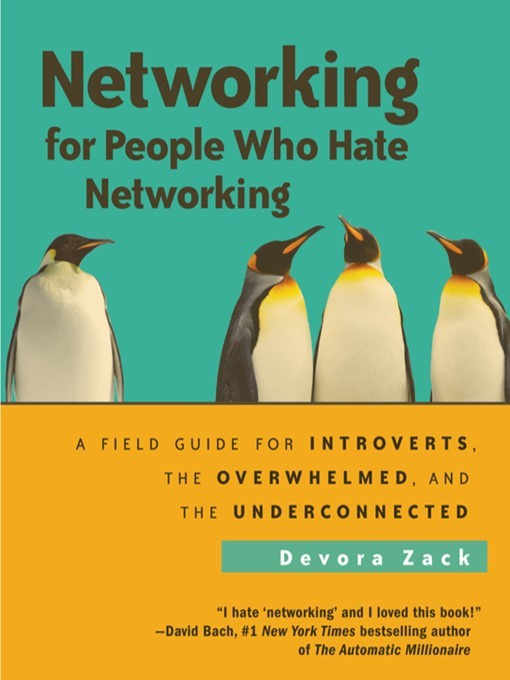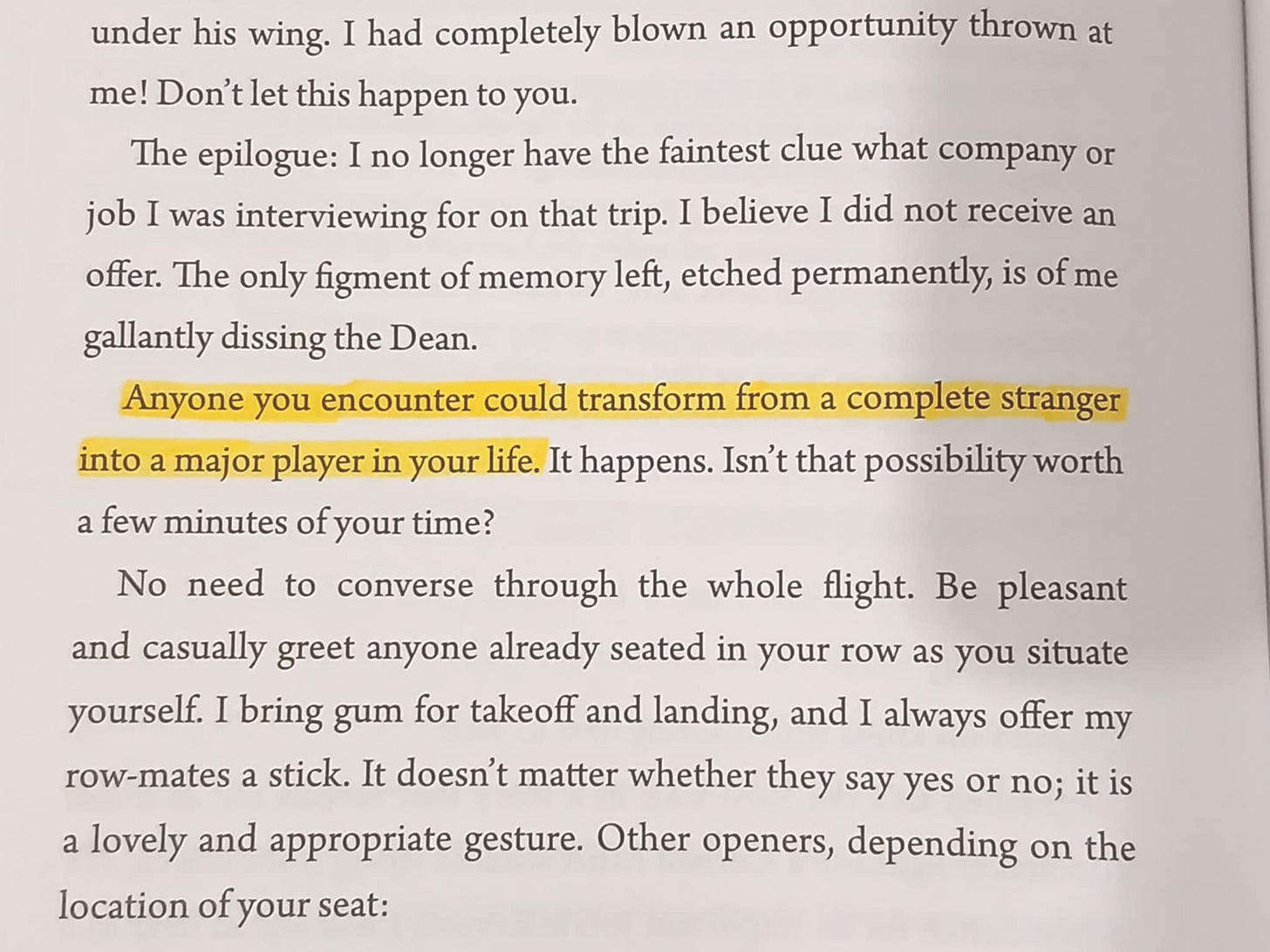Networking For People Who Hate Networking | Book Review
if nothing's changing, then you're not working with your own nature
I first saw this on my grandmother’s decorative book selection by a small anything-you-can-do-with table in the room. I instantly, almost embarrassingly, fell in love with the premise. A quote in the back cover slingshotted my hopes high: “You do not succeed by denying your natural temperament; you succeed by working with your strengths.”
As the pages thinned out and finally said goodbye, I have to assess whether it’s changed anything for me, so it could for you too (hopefully!). And you know what I think? It’s a mix of no— but a surprising amount of yes as well. Let me share with you how Devora Zack’s Networking For People Who Hate Networking, a “field guide for the introverts, overwhelmed and underconnected,” panned out for a reserved girl who yearned how to find and connect with more like-minded people, which meant facing my biggest fear: networking (yay?).
So what if I’m an introvert?
At first, I was unimpressed because our friendly author used the I/E (introversion and extroversion) spectrum in the first few chapters and asked me what category I fit in. I let an eye-roll loose, knowing full well that people are more nuanced than the binary labelling practice. As it turns out though, it wasn’t for dictating who you are but giving you a place to start from. Because at some point, whatever changes you introduce should complement what’s natural to you, right?
I guess my “violent reaction” just shows how demeaning the spectrum is often used. Because apparently, it’s not hard to hear someone stereotype introversion as the inferior end of the line, but thankfully, Devora only broke these poor notions and reconstructed it with a bit more love than before.
So, what’s new? What ideas pick this book apart from traditional networking advice?
Real networking is connecting
Let me start with Devora’s quote, “real networking is connecting”. There is a term called super-connector, which applies to the person with a kilometer wide of contacts and are masterful at initiating in any given space for interaction— obviously, the typical extrovert.
But if true networking is based on the quality of relationships you make rather than the number of people you know, then who's really doing it right?
Given this principle, knowing everyone in the room doesn’t turn out to be the goal. It’s knowing a few, or at least one, and creating a good rapport, a meaningful conversation, or sharing something worth reflecting with them.
I tried doing this and felt like I penetrated through a few walls with how I relate to people. A recent example is when I tried to share to my aunt my thoughts on premarital sex and whether it’s okay for young people to be getting into relationships. Historically, we didn’t get along as much, but the simple act of allowing ourselves to hear what we both thought went a long way. She later expressed how I can rely on her to talk about what both lightens or weighs me down, which, if you’ll ask me, is a sign of a relationship taking root.
It may not be a hundred percent networking success (still getting a hang on expressing my thoughts!), but it’s the kind where it begins. Because if real networking is connecting, then creating conversations where mutual trust and empathy exists is the real win, and most importantly, the starting point for something more fuller to take shape and begin.
There is a quote of hers as well, one I must possibly recount at all costs, where “life is one giant networking opportunity”.
In here, Devora specifically refers to a scenario I often find myself in, where I’m sitting with a person that I have no idea or intention to talk to about anything with.
When she explains that, “each encounter has limitless potential,” I felt like I could finally connect the dots.
I once told a friend that I didn’t think they needed me in their circle in the past, which explained my disinterest or how I almost never approached them. It turns out that I was mistakened (very much, dang it) to assume that since we could’ve been best friends! I only realized it when I opened up more to them recently.
It was a bittersweet lesson, but one that I now embrace despite the habitual urge I still have to just ignore people when I’m not in the mood to talk. It still happens most of the time, of course, but I’ve been trying to sit with that discomfort instead of letting it entirely discourage me from trying.
Because one thing I’ve learned with the whole process is that quitting yourself is a cop-out, the easier thing to do than to keep going. Why quit when it’s just as hard when you’re trying and when you’re not?
If I could encapsulate the book’s key message, it would be through one of the sentences I carefully underlined between pages, that “a sure way to fail is to pretend to be someone you are not.”
Honestly, I can’t ‘fake it ‘till I make it.’ Energy is almost as perceptible as any physical matter, and I can never recall a time that I made a lasting connection by trying to act like who I think I should be, rather than who I really am. Maybe it works better for others in varied ways, but I’ve realized that when I accept who I fundamentally am, it radically shifts the way you relate to others as well. It could even reflect that they too, can give theirselves permission to accept who they are while we all slowly work towards becoming a fuller version of ourselves.
I may ironically botch an interaction the next few days by some jinx effect but here’s to trying no matter what anyways!




